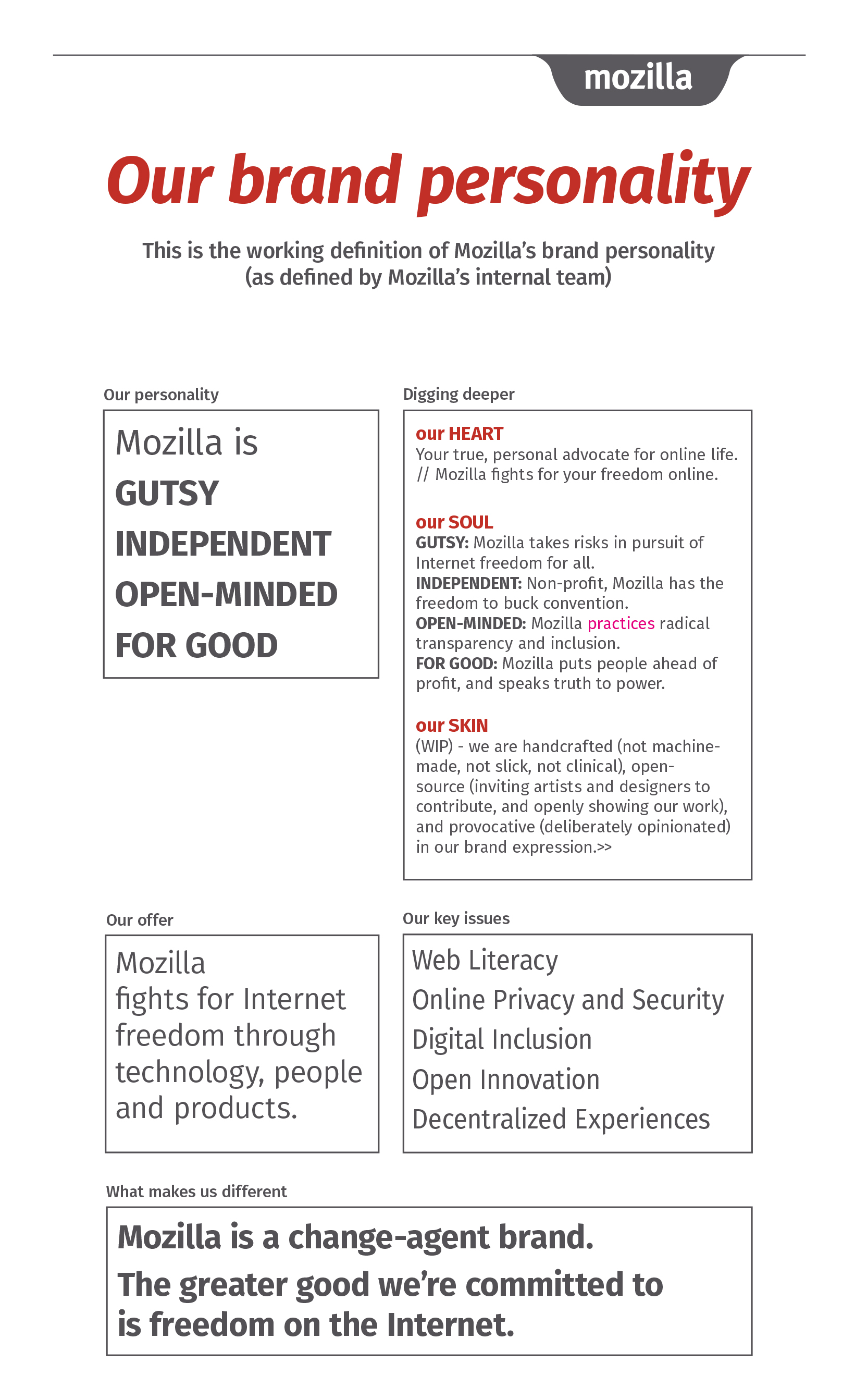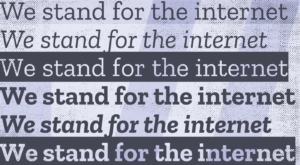Based on internal and external interviews, research, and our hypotheses about the future of Mozilla, we developed this discrete set of brand personality characteristics and related positioning statements. Our goal is to offer a launching-off point for further discovery, not to be an end in itself. The 7 thematic pathways will pressure test this thinking, and we’ll see what results.












Manuel Rico wrote on
Tim Murray wrote on